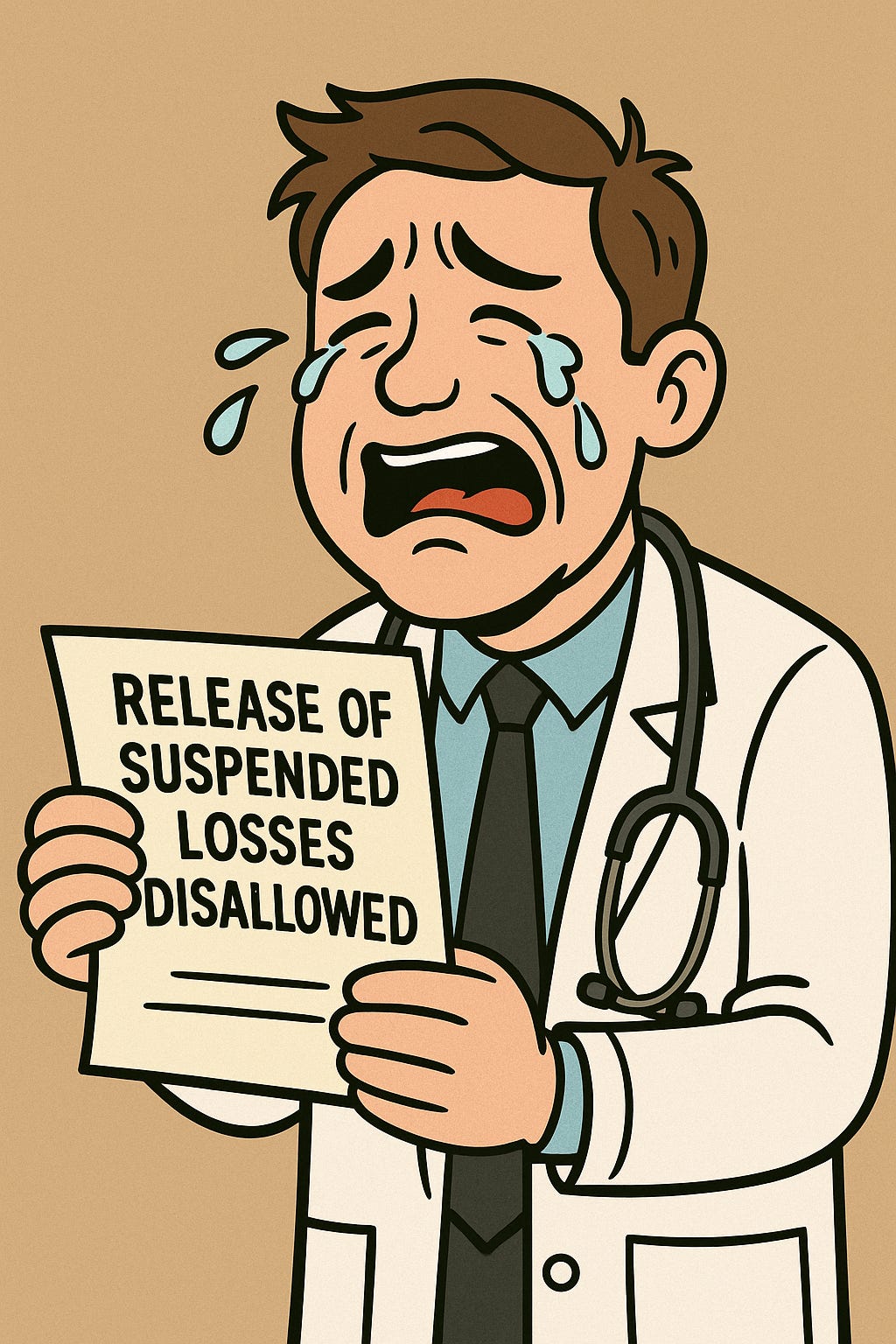Grouping Rental Properties Can Backfire!
The Hidden Tax Trap That Could Cost You Thousands
Got Rentals? Then, this is a must-read!
Just like in Medicine, every treatment has pros and cons. A chemo drug can save a life, but it can also cause harsh side effects. They key is knowing both sides before making the decision.
Tax planning is no different.
Enter the grouping election - a favorite tool of many rental property owners.
So, what is grouping?
It is a tax mechanism that allows you to treat multiple rental activities as one single activity - but only if they form what the IRS calls an “appropriate economic unit.”
In plain English: your rentals need to be related enough for the IRS to let you group them. Same ownership, same management, or same geographical location usually does the trick.
For doctors, grouping becomes especially powerful if a spouse qualifies as a Real Estate Professional (REP).
Why? Because with grouping, all the hours spent across your rentals can be added together towards the 500-hour material participation test.
Hit that magic number, and suddenly your rental losses are no longer “passive.” They transform into non-passive losses - meaning they can directly offset your doctor income. Nice!
Without grouping? Forget it. You’d have to hit the 500-hour test for each property separately. Nearly impossibly… unless you live at Home Depot and manage tenants like it’s your full-time job. :)
On the surface, grouping looks amazing - like a miracle cure. It helps you meet material participation requirements so you can use those rental losses to offset your doctor’s income.
Sounds great, right?
Not so fast.
Just like chemo - grouping elections come with side effects. And If you don’t understand them, you could get blindsided.
The Side Effect Nobody Warned You About
Here’s where grouping can cause unexpected tax-nausea.
Imagine this: you and your spouse own three rentals, all grouped together (per the recommendation of your CPA. Life is busy, you haven’t met the material participation test, so the rental activity is still treated as passive. Over time, the group racks up $30,000 of suspended passive losses (about $10k per property).
You’ve had enough of one property - say, Rental #3. Maybe it’s the constant repairs, maybe it’s a series of bad tenants, or maybe it’s the unfriendly ghost that keeps freaking people out. So, you sell it, and the sale generates a $30k gain.
Wohoo!
You’re thinking,
Perfect, I have $30k in suspended losses, so the $30k gain will be completely wiped out! Zero taxable income. Done deal.
Wrong!!!!
Because you grouped the rentals, you haven’t disposed of the entire activity - you still own the other two. The IRS only allows you to “release” suspended passive losses when you dispose of substantially all of the activity in a fully taxable sale to an unrelated party.
Translation: the gain from Rental #3 can only offset the suspended passive losses if you sold all three rentals in the group.
Since you sold only Rental #3, here’s what happens:
The $30k gain from Rental #3 sale is fully taxable.
The $30k suspended loss stays trapped inside the group.
Ouch. You definitely need some Zofran for this one.
What If You Hadn’t Grouped?
Now flip the scrip.
If you hadn’t grouped the rentals, each property would stand alone as its own activity. When you sell Rental #3, that’s considered disposing of your entire interest in that activity. Which means the suspended losses tied specifically to Rental #3 ($10k) are released and can offset the gain.
Here’s the math:
$30k gain from sale
Minus $10k suspended loss from Rental #3
= $20 taxable gain
Meanwhile, the other $20k in losses from Rentals #1-2 remain suspended until those properties are sold or generate enough passive income to absorb them.
Not a perfect cure, but definitely better than being stuck paying tax on the full $30k gain.
Final Thoughts
Grouping can be a powerful tool. It can help you meet material participation and unlock non-passive treatment for your rental losses. But just like any medical treatment, there are side effects - and in this case, grouping can trap your losses when you sell a property.
Before making a grouping election, as yourself:
Do I plan to sell any rentals in the near future?
How will grouping affect my ability to use suspended losses?
Do the benefits of grouping outweigh the risks for my situation?
Understand the rules. Weigh the pros and cons. And most importantly, make sure your tax strategy matches your long-term goals.
Because in tax - just like in medicine - the right treatment can heal, but the wrong one can make things worse.
Disclaimer: click here



